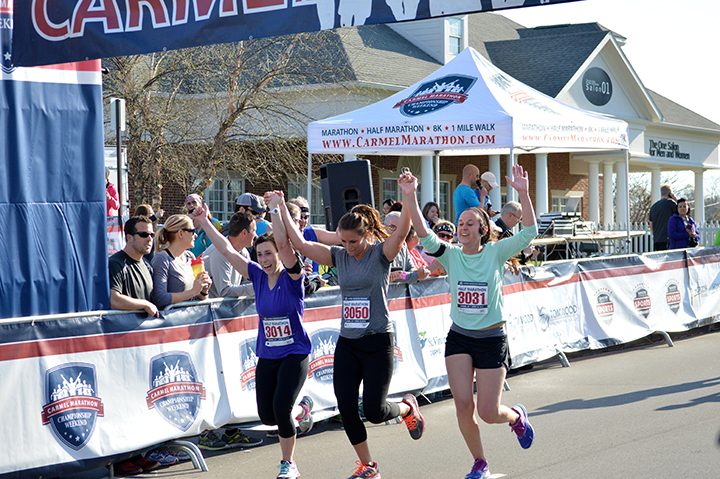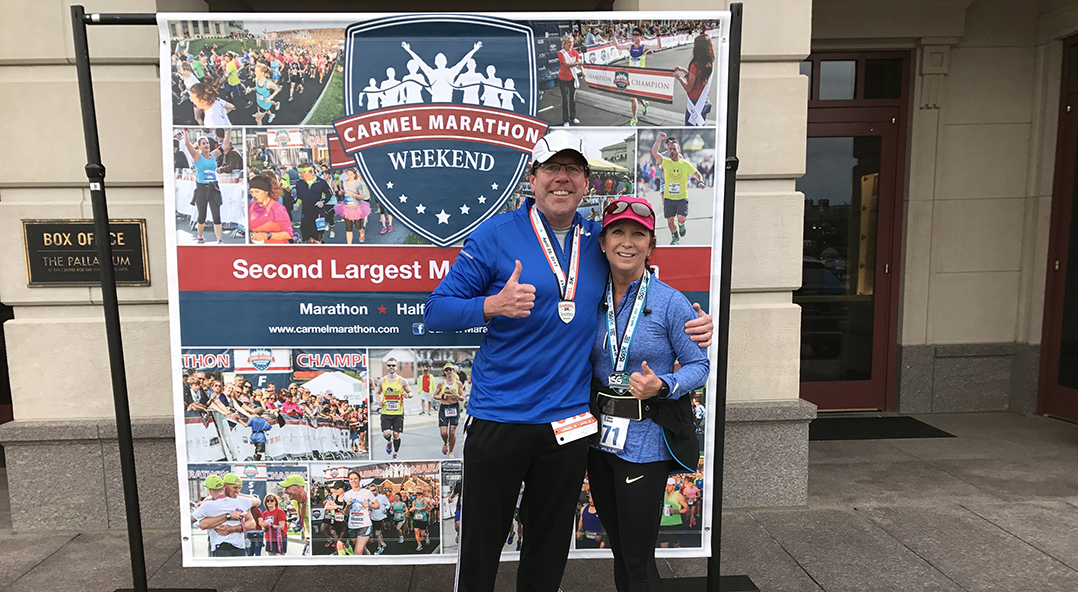The Carmel Marathon, held annually in Carmel, Indiana, is a highly anticipated event for runners of all levels. With its scenic course, supportive community, and well-organized logistics, it provides an excellent opportunity for participants to achieve their personal bests (PBs). Whether you are a seasoned marathoner or a first-time participant, this article will provide you with valuable insights and tips to help you perform at your best during the race.
Understanding the Carmel Marathon Course

Before you can set a personal best, it’s crucial to understand the course layout. The Carmel Marathon is known for its flat and fast route, which is ideal for runners aiming to achieve their PBs.
- Course Terrain: The course features mostly flat terrain with a few gentle inclines, making it conducive to fast running.
- Scenic Views: Runners will enjoy the beautiful landscapes of Carmel, including parks, residential areas, and tree-lined streets, which can provide motivation throughout the race.
- Weather Conditions: March weather in Indiana can be unpredictable, so it’s essential to check forecasts and prepare for varying conditions.
Training Strategies to Optimize Performance
A solid training plan is foundational for running a personal best. Here are some effective strategies to incorporate into your training regimen:
- Long Runs: Incorporate long runs into your weekly schedule to build endurance. Aim for at least one long run each week, gradually increasing your mileage.
- Speed Work: Include interval training and tempo runs to improve your speed. For instance, consider adding a weekly track workout where you alternate between fast-paced laps and recovery laps.
- Rest and Recovery: Ensure that you have sufficient rest days to allow your muscles to recover and adapt to your training.
- Cross-Training: Engage in cross-training activities, such as cycling or swimming, to improve your overall fitness without the impact stress of running.
Nutrition: Fueling for Success

Nutrition plays a critical role in your performance on race day. Here are some dietary tips to help you fuel your body effectively:
- Carbohydrate Loading: In the week leading up to the marathon, increase your carbohydrate intake to maximize glycogen stores. Foods like pasta, rice, and fruits are excellent choices.
- Hydration: Stay well-hydrated in the days leading up to the race. Consider drinking electrolyte-rich beverages to maintain balance.
- Pre-Race Meal: On race morning, consume a familiar meal that is high in carbohydrates and low in fat and fiber, such as oatmeal or a banana with peanut butter.
- During the Race: Plan your nutrition strategy for the marathon. Use energy gels or chews at regular intervals, and consume water at hydration stations to stay hydrated.
Mental Preparation: Building a Strong Mindset

The mental aspect of running a marathon is just as important as the physical preparation. Here are some strategies to sharpen your mental game:
- Visualization: Spend time visualizing your race strategy, including how you will feel at different points in the race. Picture yourself crossing the finish line with a personal best.
- Goal Setting: Set realistic and achievable goals for your race. Consider having a primary goal (your PB) and secondary goals that are slightly more conservative.
- Positive Self-Talk: Develop a repertoire of positive affirmations to repeat during the race, such as “I am strong” or “I can do this.”
- Mindfulness Practices: Incorporate meditation or mindfulness techniques into your routine to reduce anxiety and improve focus.
Race Day Strategies for Success

The day of the marathon is where all your preparation comes together. Here are key strategies to implement on race day:
- Arrive Early: Give yourself plenty of time to arrive at the race venue, allowing for unforeseen delays and time to warm up.
- Warm-Up: Engage in a light warm-up routine to prepare your body for the race. This can include dynamic stretches and light jogging.
- Pacing Strategy: Start the race at a controlled pace; avoid the temptation to go out too fast. Aim to maintain a steady pace that aligns with your goal time.
- Stay Focused: During the race, focus on your form and breathing. Break the marathon into smaller segments mentally to make it feel more manageable.
Post-Race Recovery: The Key to Future Success
Once you’ve crossed the finish line, your work isn’t over. Proper recovery is essential for your physical and mental health, especially if you want to continue improving.
- Cool Down: After completing the race, engage in a cool-down routine that includes walking and stretching to help your muscles recover.
- Nourishment: Replenish your body with a balanced meal that includes carbohydrates, protein, and healthy fats to aid recovery.
- Rest: Allow your body adequate time to recover before resuming training. This may include taking a few days off or engaging in low-impact activities.
- Reflect: Take time to reflect on your performance, noting what went well and areas for improvement. This can help you prepare for future races.
Running a personal best at the Carmel Marathon requires a combination of effective training, proper nutrition, mental fortitude, and strategic race-day execution. By understanding the course, implementing a well-structured training plan, fueling your body correctly, and preparing mentally, you can enhance your chances of achieving your goals. Remember that every runner’s journey is unique, and what works for one person may not work for another. Listen to your body, stay committed to your training, and enjoy the experience of race day. With determination and preparation, you can cross that finish line with pride, knowing you’ve given it your all.
